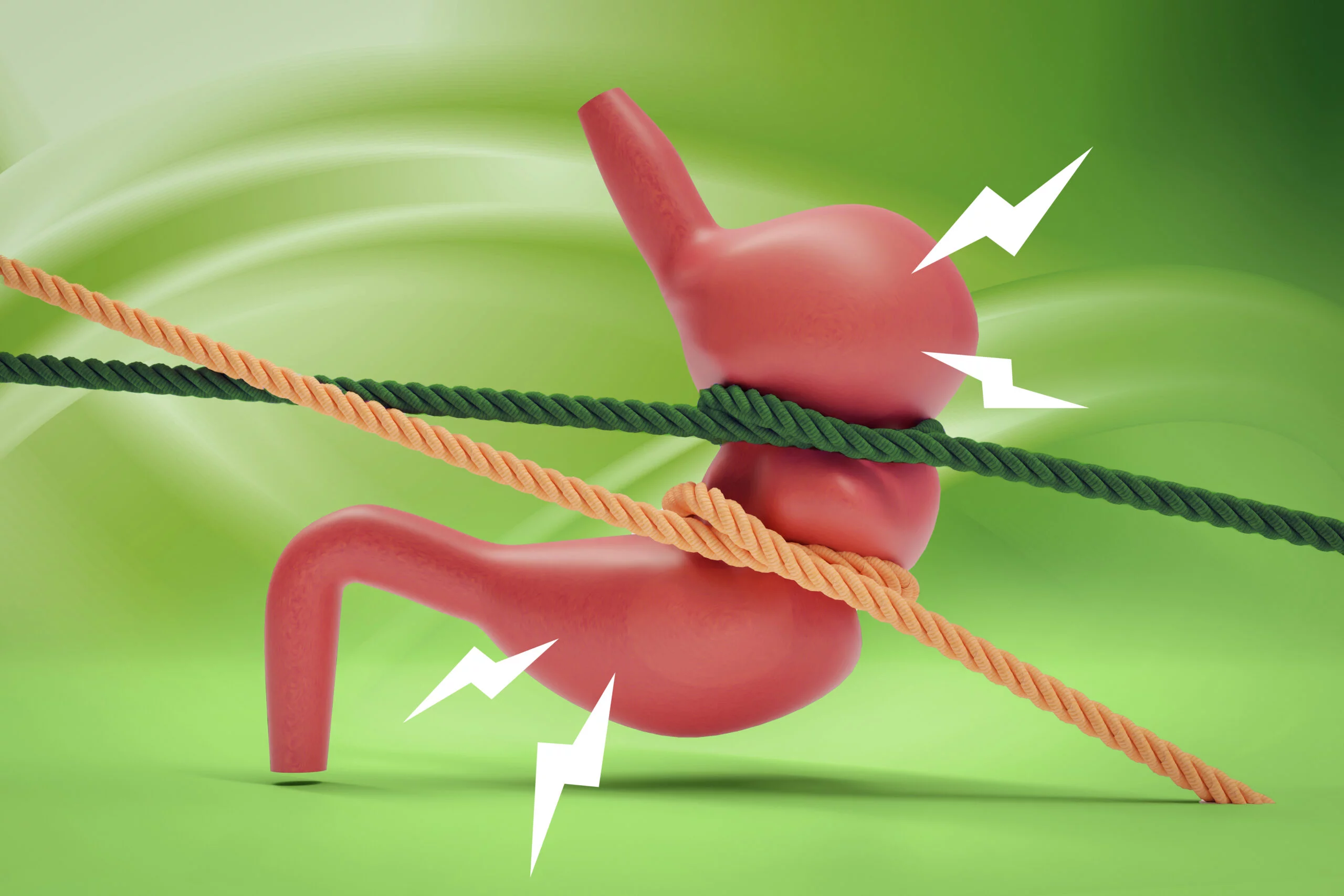
When dealing with the chronic discomfort and unpredictable nature of Irritable Bowel Syndrome (IBS), a condition defined by recurrent abdominal pain linked to changes in bowel habits, it is often a long and winding road filled with frustrating moments and challenging adjustments that requires a holistic approach and an understanding of its deep connection to lifestyle.
The Complex Nature of Irritable Bowel Syndrome
IBS is not simply a tummy ache or a one-time issue; it is a functional gastrointestinal disorder that significantly impacts daily life, affecting a substantial number of individuals across the globe. The hallmark of IBS involves persistent symptoms like bloating, gas, and an unpredictable cycle of constipation (IBS-C), diarrhea (IBS-D), or a mix of both (IBS-M), which can truly turn one’s world upside down. Understanding that this is a disorder of the gut-brain axis—the communication highway between your brain and your digestive system—is the first crucial step toward effective management. This realization helps move beyond just treating the physical symptoms to addressing the underlying mechanisms that amplify discomfort, making it essential to look at the bigger picture of a person’s life, not just their plate.
Prevalence and Local Insights into IBS
It is interesting to note that IBS is a globally recognized issue, and its prevalence in a country like Turkey is reported to vary, yet it is clearly a common concern. While figures shift depending on the diagnostic criteria used, some studies have indicated that the prevalence can range from approximately 6.3% to 19.1% in the adult Turkish population, which is quite a broad spectrum. In certain studies conducted in specific regions, a higher occurrence has been observed in women and individuals with lower educational or socioeconomic statuses, highlighting potential demographic links that warrant deeper investigation. Recognizing this local context, for example, the high rates among certain groups, allows us to tailor our approach to management and resource allocation more effectively, ensuring that we are not missing a key segment of the community in need of support.
Understanding the Gut-Brain Connection and Its Role
The interaction between your gut and your brain is far more complex than a simple one-way street; it is a lively, two-way conversation where stress and emotions play a dramatic role in gut health. This is why you often hear of people with IBS experiencing flare-ups during periods of high anxiety or stress. Research consistently shows a significant overlap between IBS and psychological distress, with individuals often reporting higher levels of anxiety, depression, and stress compared to the general population. Dealing with the unpredictability of symptoms can itself become a major source of stress, creating a vicious cycle where worry exacerbates the physical discomfort, which then fuels more worry. Therefore, any effective management plan must include strategies to gently tame the mind, helping to modulate this powerful gut-brain connection and bring some much-needed calm to the digestive tract.
Tailoring Dietary Management: The Low FODMAP Approach
One of the most evidence-based and effective dietary strategies for managing IBS symptoms is the Low FODMAP Diet, which focuses on restricting Fermentable Oligosaccharides, Disaccharides, Monosaccharides, and Polyols. These are short-chain carbohydrates that are poorly absorbed in the small intestine, leading to fermentation and gas production in the colon, which causes bloating and pain. However, following this diet requires careful adaptation, especially in cultures with rich and diverse food traditions, such as Turkish cuisine, which often features items like wheat, legumes, and onions that are high in FODMAPs. For instance, yoghurt (yoğurt), a staple, can be low in FODMAPs if it is a traditional, well-fermented, and strained type (like some strained yoğurt, depending on the lactose content) but can be problematic if it contains high levels of lactose, showing how a simple food requires a nuanced view.
Practical Dietary Adjustments for Daily Life
Instead of a restrictive, one-size-fits-all approach, we strongly advocate for a personalized, three-phase elimination, reintroduction, and maintenance plan led by a dietitian. Since completely eliminating certain food groups can lead to nutritional deficiencies and social challenges, the goal is to identify your personal trigger foods. For example, instead of removing all wheat, you might tolerate a sourdough bread made with specific cultures, as some Turkish studies from the Marmara region have shown that certain sourdough-derived Lactobacillus strains can significantly reduce the fructan (a type of FODMAP) content. This kind of localized, practical wisdom helps people enjoy their cultural favorites while maintaining symptom control, which is incredibly important for long-term adherence and a sense of normalcy in their lives.
The Importance of Medication and Supplements
Beyond diet and lifestyle adjustments, medication can be a key piece of the puzzle, providing a crucial safety net for controlling symptoms. Over-the-counter options like antispasmodics (to calm intestinal cramps) and laxatives or antidiarrheals (to regulate bowel movements) are often the first line of defense. The cost of these common medications in a place like Turkey can vary approximately, but they are generally accessible through local pharmacies, though some newer, specialized treatments may carry a higher cost. We recommend always consulting with a healthcare professional to find the right pharmacological treatment tailored to your specific IBS subtype and symptom severity, emphasizing the need for professional guidance rather than self-medication.
Navigating the Psychosocial Impact of IBS
Living with a chronic and unpredictable condition like IBS carries a heavy psychosocial burden that often goes unacknowledged. The constant fear of a sudden flare-up can lead to avoidance behaviors, such as limiting social outings or travel, which severely restricts a person’s quality of life. The mental toll of having to constantly plan your life around restroom access or a sudden wave of pain is exhausting. Therefore, incorporating strategies like cognitive-behavioral therapy (CBT), hypnotherapy, or mindfulness techniques is not a luxury but a fundamental necessity in a comprehensive care plan. Addressing the anxiety and stress that often accompany IBS helps turn down the volume on the gut-brain highway, leading to a calmer internal state and fewer symptoms.
Lifestyle Interventions for Long-Term Relief
A few consistent lifestyle habits can act as a powerful anchor against the turbulence of IBS symptoms. Regular, moderate-intensity physical activity, like a brisk walk in Istanbul’s vibrant parks or along the coast, is scientifically proven to improve gut motility and reduce stress, often having a profound impact on symptoms. Furthermore, maintaining regular mealtimes and eating slowly are simple but highly effective techniques for improving digestion and preventing the sudden shock to the system that can trigger a flare-up. Adequate, restorative sleep is another non-negotiable component, as sleep deprivation is a major stressor that can destabilize the delicate balance of the gut.
When to Seek Professional Guidance
While many people try to manage IBS symptoms on their own, it is essential to know when to call in the cavalry and consult with a specialist. If you experience alarm symptoms such as unexplained weight loss, blood in the stool, persistent severe abdominal pain, or symptoms waking you from sleep, you must seek urgent medical attention to rule out other, more serious conditions. Even without alarm symptoms, if your quality of life is severely affected, or if diet and over-the-counter treatments are not providing sufficient relief, it is high time to engage with a gastroenterologist or a specialized dietitian who can help craft a truly personalized treatment plan.
A Personalized Path to Comfort
Managing Irritable Bowel Syndrome is truly an ongoing journey, not a sprint, and it requires patience, curiosity, and a commitment to self-care that feels genuine and sustainable. The best outcomes are almost always seen when a person adopts a multidisciplinary approach, one that intelligently blends dietary changes, stress management, and medical therapies. We find that small, consistent steps, like meticulously keeping a symptom-and-food diary, can provide profound insights that unlock the mystery of your individual triggers. This comprehensive guide, which aims to demystify this challenging condition, was prepared by the editor of www.internalmedicine.ae. The most important takeaway is that you are not alone in this, and with the right strategy, a more comfortable and predictable life is absolutely within reach.
